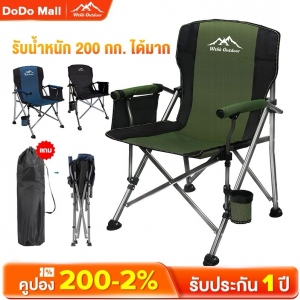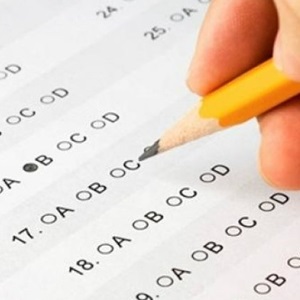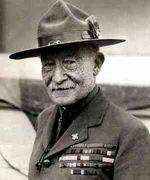TKT Tip 06: TKT Module 3 - Teacher roles
Type: article
This month Jim looks at a question from Module 3 of TKT: Managing the teaching and learning process.
In this regular column we help you to improve your answers to questions in TKT – the Teaching Knowledge Test set by University of Cambridge ESOL Examinations. Each month we look closely at one question and find out why the correct answers are right. All of the example questions are taken from real TKT sample exams but have been shortened.
Try this question*:
Question excerpt
For questions 1-6, match the teacher activities with the teacher roles listed A, B or C. Mark the correct letter (A, B or C) on your answer sheet.
You need to use some options more than once.
Teacher roles
A DIAGNOSTICIAN (Finds out the needs and interests of students)
B PLANNER (Chooses materials and/or methodology before the course or lesson)
C MANAGER (Manages students and activities during class time)
Teacher activities
- The teacher asks a noisy student to speak more quietly.
- The teacher invites students to suggest topics for course content.
- The teacher wants to identify gaps in their knowledge so she asks students to brainstorm crime vocabulary.
- The teacher decides which coursebook activities will fit into the time available for the lesson.
- The teacher finds a video to fit the topic of the unit.
- The teacher gives students a questionnaire in order to find out more about their learning styles and preferences.
* Reproduced with the kind permission of University of Cambridge ESOL Examinations.
Question focus
This question tests your understanding of some of the different roles that a teacher can take on.
What you need to know
Teachers may take on many different roles during a working day. A teacher who is presenting a grammar point to a large class will be doing things very differently from one who is monitoring students while they do some quiet writing work or from a teacher in the staff room at the end of the day selecting material to use in next week’s classes.
There isn’t any definitive list of all the roles a teacher can take on, and you will find that different writers may call them by different names. The important thing is to understand the nature of the different roles, rather than just to know the meaning of the names. To help you, this question gives you a definition of each role name it uses.
DIAGNOSTICIAN: The first role in the question has the name of diagnostician. This name is connected to the verb diagnose which means 'to find out what problem someone has'. The verb is often used to describe one of the things that a doctor regularly does. If you go to see your doctor, they will need to diagnose what is wrong with you before they can give you advice or prescribe you any medicines. In order to diagnose your problem, the doctor will look carefully at you and think about what is wrong. Similarly, a teacher working with a class often needs to look carefully at her students and find out what they can and can’t do. This will help her to understand the needs of the students – the things that they need to study or work on in order to get better. Of course, knowing a class’s needs is not the only thing that you need to know in order to start making plans about what work you can do with them. The teacher will probably also want to take her class’s interests and their preferred ways of working into account as well.
PLANNER: The second role in the question is that of planner. This describes someone who 'chooses materials and/or methodology before the course or lesson'. In other words, the planning role comes after the diagnosing role described above – but before the actual teaching in class. You cannot plan successfully until you have looked carefully at what the students can do and made decisions about what they need to work on. Planning involves making decisions about things such as which teaching and learning materials will be most suitable to use with the class, what tasks would be best for them to do, which groupings would work best and which teaching techniques would be most effective. The teacher will make her planning decisions by thinking about what she knows about the class and their needs.
MANAGER: The last role described is that of manager and this is defined as someone 'who manages students and activities during class time'. In other words, this role involves the things that a teacher does in class to organise the learners and the work that they do. Managing is making the learning happen. This means that it comes after both the diagnosing and the planning. Management activities include moving chairs, making groups, handing out worksheets, giving instructions, checking that students know what to do, dealing with discipline problems and so on. When something happens in class and the teacher has to respond to it by making a decision and giving an instruction or command this is the role of manager.
So what are the answers?
1C, 2A, 3A, 4B, 5B, 6A
Commentary on answers
The biggest difficulty in finding the right answers for this question will be in distinguishing between diagnostic activities and planning activities. To help you, remember that diagnosis comes before planning. The diagnosis is when you find out about the students. The planning is what you do with that information when preparing future lessons or courses.
Question 1 is an in-class management action.
Question 2 involves the teacher finding out what interests the students have.
Question 3 diagnoses vocabulary needs.
Question 4 and 5 are both to do with planning because they involve decisions about what to teach and which material to use.
Question 6 is diagnostic as it involves finding out about learner styles and preferences – which can later help the teacher plan.
What else should I study?
Remember that although there are only three roles in this question, a teacher may have many other roles as part of their work. As I have mentioned, these roles do not have fixed names, but may include terms such as monitor, presenter, helper, explainer, corrector, evaluator.

 ค้นหาทุกอย่างในเว็บครูบ้านนอก :
ค้นหาทุกอย่างในเว็บครูบ้านนอก :








































Bookmark with:
What are these?
This month Jim looks at a question from Module 3 of TKT: Managing the teaching and learning process.
In this regular column we help you to improve your answers to questions in TKT - Teaching Knowledge Test set by University of Cambridge ESOL Examinations. Each month we look closely at one question and find out why the correct answers are right. All of the example questions are taken from real TKT sample exams but have been shortened.
Try this question*:
Question excerpt
For questions 1 to 5, match the underlined mistakes with the types of error listed A-F. Mark the correct letter (A-F) on your answer sheet.
There is one extra option which you do not need to use.
Mistakes
1 Ghosts are usually saw at night.
2 I am very much like football.
3 Every festival are different in my country.
4 We must to protect the environment.
5 What time did you say you going out later?
Types of errors
A unnecessary auxiliary verb
B missing auxiliary verb
C wrong verb form
D wrong verb pattern
E wrong phrasal verb
F wrong subject-verb agreement
* Reproduced with the kind permission of University of Cambridge ESOL Examinations.
Question focus
This question tests your ability to recognize exactly what is incorrect when students make mistakes. It also tests your ability to categorize these errors using grammatical terminology.
What you need to know
First of all, you'll need to be able to identify what is wrong with each sentence. Although the question gives you some help by highlighting the general area that the mistake is in, you will still need to pinpoint the precise error yourself. It's important to do this carefully as the mistakes may at first glance appear to be quite similar. In this example question all the errors are to do with verbs - so it's not good enough just to recognize that the verb is 'wrong'; we have to identify exactly what is wrong about it.
It will also help you if you can decide what the correction should be for each sentence. By comparing the wrong sentence and the corrected sentence, you can quickly decide exactly what is at the heart of the problem.
So, let's start by spotting the errors and correcting them:
1. Wrong: Ghosts are usually saw at night. Corrected: Ghosts are usually seen at night.
This is a passive sentence - i.e. it's not the ghosts that are doing the action. Compare the active and passive - Active: "I usually see ghosts at night." Passive: "Ghosts are usually seen at night." All passive forms are made using the past participle form. The past participle of the verb see is seen (not saw). So we can identify the mistake as a 'wrong verb form' - the past simple verb form has been incorrectly used instead of the past participle form.
2. Wrong: I am very much like football. Corrected: I very much like football.
This is a normal Present Simple sentence. The word order is slightly unusual with very much coming after the pronoun rather than at the end of the sentence where it more normally appears. However, this word order is possible and isn't a mistake. The error is the addition of the auxiliary verb am which is completely unnecessary to the sentence structure.
3. Wrong: Every festival are different in my country. Corrected: Every festival is different in my country.
This question demonstrates how careful you need to be in selecting the best answers. There is clearly a mistake with the auxiliary verb are / is here - but the two answers listed that use this terminology are 'unnecessary auxiliary verb' and 'missing auxiliary verb' - neither of which are accurate descriptions of this problem. So, be careful - don't just spot that the 'auxiliary verb' is wrong and jump for one of these answers. You also need to be careful of the answer 'wrong verb form' - which is arguably correct, but is not the most precise description of the problem.
'Every festival' is a singular subject and requires a singular verb. In the incorrect sentence, the verb form is in the plural. In other words, the subject and verb do not agree.
4. Wrong: We must to protect the environment. Corrected: We must protect the environment.
Must (like can, should, might etc.) is a modal auxiliary verb. In sentences like this, after a modal verb we need to use the verb 'base form' (also called the 'infinitive without to'). This is a fixed sentence pattern which could be expressed as a grammar rule like this: subject + modal verb + base form.
5. Wrong: What time did you say you going out later? Corrected: What time did you say you are going out later?
Once again, we have problems with those troublesome auxiliary verbs! In this case, the auxiliary are has been left out of the sentence. This may be hard to spot because the sentence is quite complex and already contains a number of verb forms (did, say, going) that may help to hide the fact that one more is needed. It may be useful just to look at the end of the sentence on its own: '... you going out later'. Clearly, there is something missing here. To make the present progressive (also known as present continuous) we always need an auxiliary verb (am, are, or is) together with the -ing form of the verb. In the incorrect sentence this auxiliary verb is completely missing.
So what are the answers?
1C 2A 3F 4D 5B
The option which is not needed is E (There is no phrasal verb in the sentences)